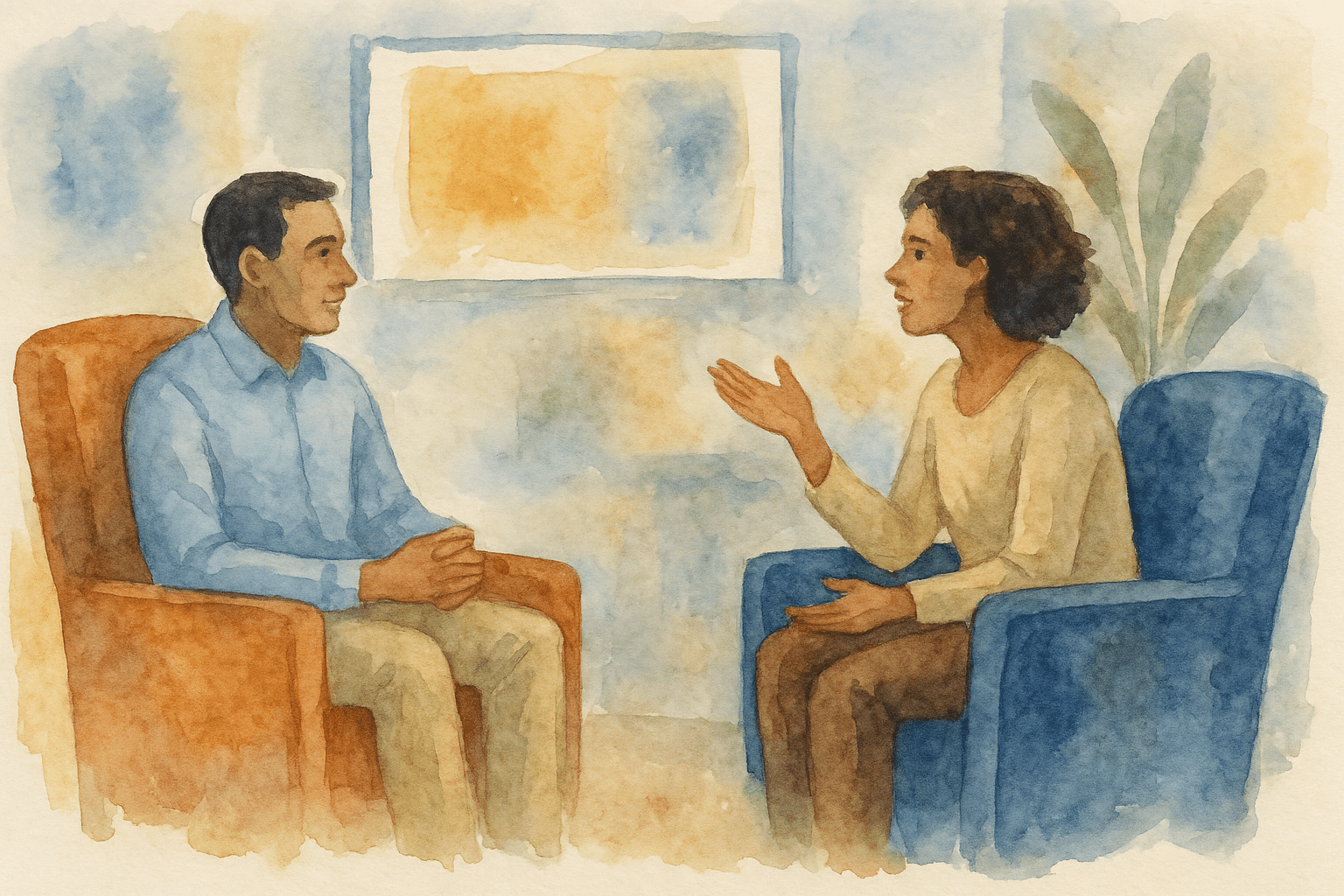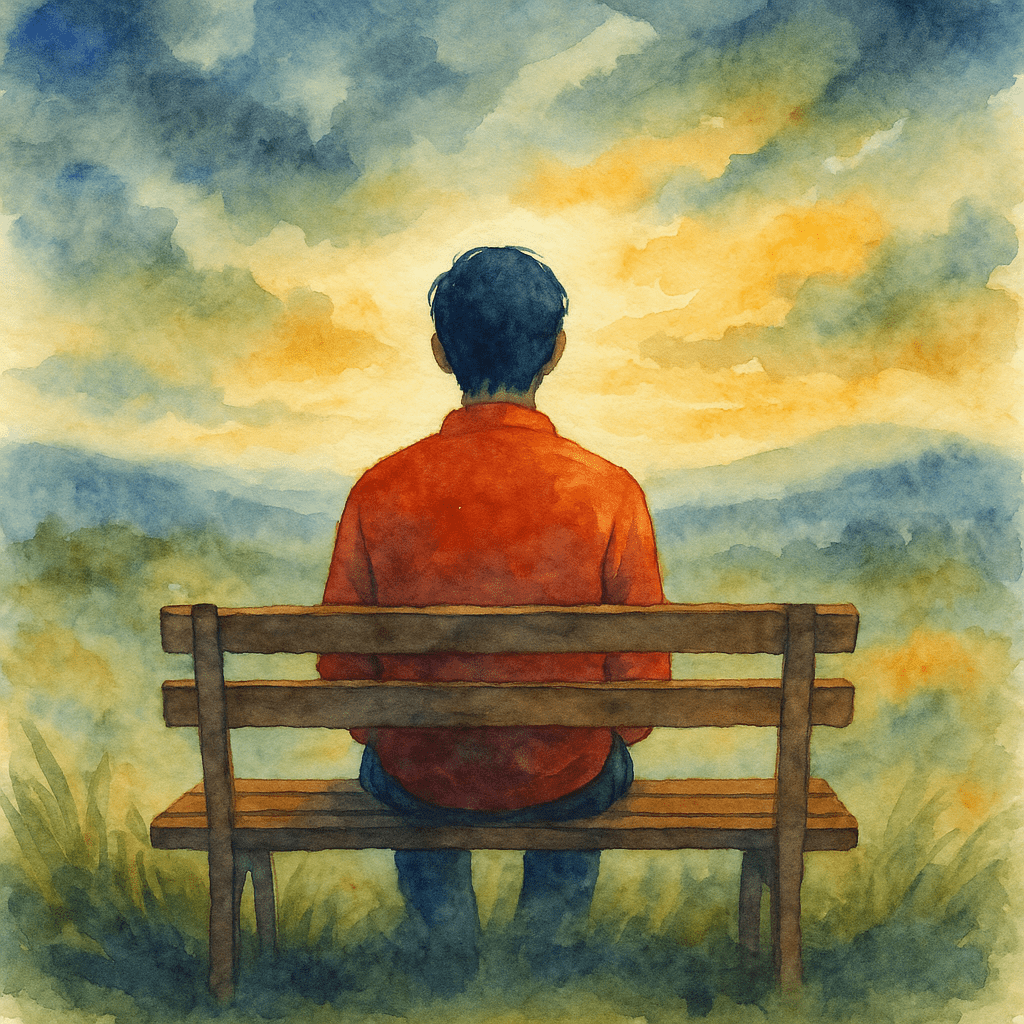
Relational Psychodynamic Therapy in Oakland: What Modern Therapy Feels Like

The past few years have left many of us feeling fundamentally unsettled. Between the global pandemic, political upheaval, and economic volatility, a sense of unease has become our backdrop. Whether it’s lingering COVID concerns, troubling news cycles, or financial pressures, our basic sense of safety feels constantly under threat.
This pervasive anxiety isn’t simply “stress” or an overactive mind—it reflects something deeper. From both philosophical and psychological perspectives, we’re experiencing a rupture in the foundational structures that typically ground us: our relationships, institutions, and shared understanding of the world.
At Bay Psychology Group, Inc., we approach these challenges through contemporary psychodynamic therapy—a method that addresses not just symptoms, but the underlying fractures in how we relate to ourselves and others. Rather than offering quick fixes, we create a space where uncertainty and fear can be understood and integrated into a more resilient sense of self.
Philosophers have long recognized that humans are fundamentally relational beings. We depend not only on physical structures—homes, jobs, stable institutions—but on relational ones: the trust we place in others, shared language and meaning, and unspoken social agreements that guide daily life.
When these structures falter—as they have during recent crises—the very ground beneath us shifts. Psychodynamically, this represents a breakdown in what we might call our “symbolic order”—the overarching framework of meaning, language, and shared assumptions that makes everyday life comprehensible and predictable.
This isn’t simply about individual relationships, but about the collapse of the broader meaning-making systems that orient us in the world. When fundamental categories like “safety,” “future,” and “social contract” become unstable, we’re left grappling with what feels like raw, unprocessable reality—what some theorists call an encounter with the “Real” that exceeds our capacity to symbolize or integrate.
Psychoanalyst Donald Winnicott described the need for a consistent “holding environment” throughout development. When our broader symbolic and social environment is in chaos, this foundational matrix becomes compromised, leaving us stuck in hypervigilant, defensive modes rooted in ancient survival patterns.
Trauma is not simply a very bad event; it’s any experience that overwhelms our capacity to process distress in real time. COVID-19, for instance, didn’t just disrupt routines—it introduced collective existential uncertainty. We witnessed healthcare systems strain, watched loved ones fall ill, and felt the fragility of institutions we’d taken for granted.
Political polarization and economic instability compound these ruptures. Trauma operates on multiple levels, manifesting in ways that extend beyond typical anxiety symptoms:
Relational withdrawal: Sensing others as potentially dangerous or unreliable, leading to isolation or defensive barriers.
Embodied disconnection: Unexplained physical complaints, digestive issues, or feeling “unreal” and disconnected from your own body.
Loss of meaning-making: Difficulty finding words for experiences, feeling that language fails to capture the depth of distress.
Existential emptiness: A pervasive sense that life lacks coherent meaning, often masked by busyness or compulsive distractions.
These experiences may surface as anxiety, but they reflect deeper disruptions in how we relate to ourselves, others, and the world. Trauma represents a dislocation of meaning itself.
If trauma creates ruptures in our relational and existential foundation, psychodynamic therapy offers a new kind of ground—a relational space where the unspeakable can be spoken, the unbearable witnessed, and fragmented aspects of self can begin to cohere.
Drawing on object relations theory, our therapists emphasize relationships as central to healing. Rather than offering quick anxiety tools, we attend to how you inhabit the therapy room: your eye contact, your sense of our attunement, how you move toward or away from emotional truths. Through experiencing a reliable, responsive presence—one that neither intrudes nor withdraws—you begin rediscovering internal safety.
Psychoanalyst Donna Orange observed that “intersubjective vulnerability” is both wound and healing pathway. By gently exploring how traumatic experiences overwhelm meaning-making capacity, therapy helps translate bodily sensations, images, and emotions into symbolic language. This process—often gradual—reinvigorates your ability to articulate what lies beneath anxiety: not just “I feel afraid,” but understanding what that fear reveals about trust, safety, and relationship patterns.
Trauma often leaves behind broken trust—in ourselves, others, and systems. Psychodynamic therapy recognizes that even small “ruptures” in the therapeutic relationship (moments of misunderstanding or misattunement) become opportunities for profound repair. By naming and working through these micro-ruptures, you witness how relationships can be mended, creating an internal template for navigating uncertainty beyond therapy.
While cognitive approaches, like CBT, often focus on challenging distorted thoughts, psychodynamic therapy invites deeper inquiry into underlying meaning structures. What existential anxieties emerge from political violence or economic forecasts? How might collective dread echo personal histories of abandonment or loss? Exploring these layers cultivates capacity not only to endure uncertainty, but to find creative possibility within it.
Rather than asking “How do I stop feeling anxious?” the psychodynamic question becomes: “How can I inhabit my life fully—despite uncertainties—so that I regain fundamental trust in myself, relationships, and the world?”
Therapy doesn’t “cure” anxiety like a vaccine. Instead, it offers relational strengthening, gradually building your capacity to remain present without defensiveness, engage openly with others, and tolerate the unknown.
Our clinicians at Bay Psychology Group, Inc. address both individual wounds and broader social anxieties that shape them. We recognize that suffering doesn’t occur in isolation—COVID, political strife, and economic pressures all leave psychic imprints. By weaving contemporary psychodynamic principles with warm, accessible approach, we guide you toward restored security that’s neither brittle nor dependent on external conditions, but held within resilient internal framework.
Living in tumultuous times means facing challenges that extend beyond the personal. Yet the path toward renewed safety often begins with acknowledging that you need more than self-help strategies or surface-level techniques.
In a therapeutic space that honors both depth and compassionate witnessing, you can begin reclaiming groundedness that withstands uncertainty’s storms.
If you find yourself persistently on edge—racing thoughts, heightened startle responses, withdrawal from loved ones, or existential dread—consider reaching out. Our Bay Psychology Group, Inc. team provides trauma-informed, psychodynamic approaches to reclaiming safety. We accept most major insurance plans, offer in-person and telehealth options, and strive to keep services accessible for those grappling with contemporary anxiety’s many layers.
The journey to restored security isn’t about escaping uncertainty—it’s about learning to stand within it with curiosity, compassion, and connection. If you’re ready to take that step, we’re here to walk beside you.
We help people navigating anxiety, identity concerns, relationship strain, and emotional burnout—especially those who often carry a lot without letting it show. If you’re looking for something deeper than surface-level fixes, psychodynamic therapy might be right for you.
Dr. Brian Sedgeley, is a clinical psychologist and the president and founder of Bay Psychology Group, Inc. a psychotherapy and psychological services clinic in Oakland CA.